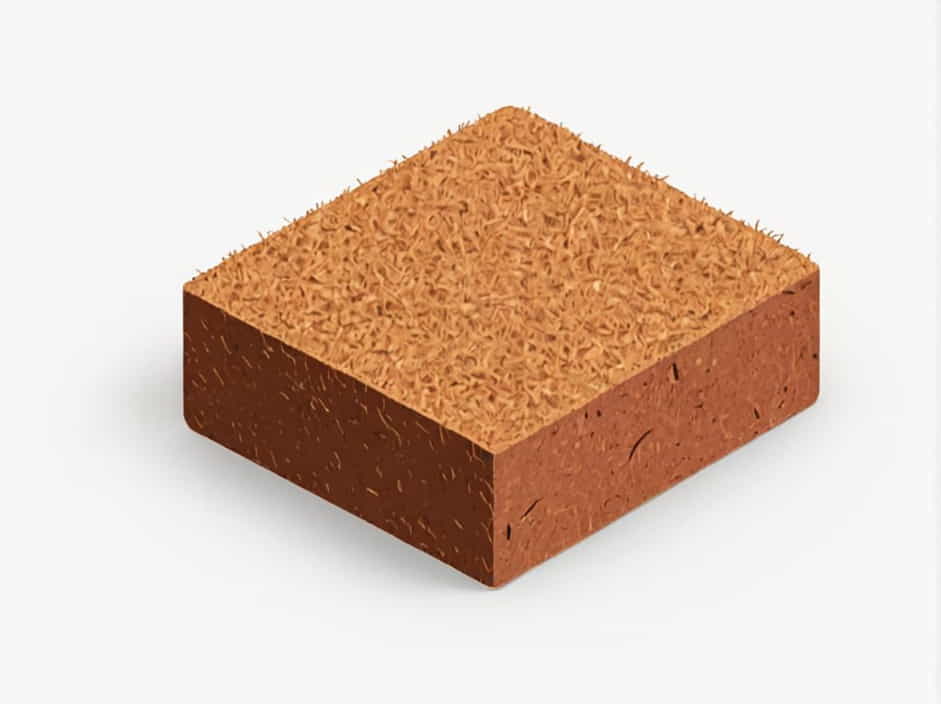Organic coconut coir bricks have become a popular choice for gardeners looking for an eco-friendly, sustainable, and efficient growing medium. Made from the fibers of coconut husks, these compressed bricks expand when soaked in water, creating a nutrient-rich and well-draining substrate perfect for plants.
Whether you’re growing vegetables, flowers, or hydroponic plants, coconut coir bricks offer numerous benefits. In this guide, we’ll explore everything you need to know about using organic coconut coir for plants, including how to prepare it, its advantages, and tips for maximizing plant growth.
What Are Organic Coconut Coir Bricks?
1. Understanding Coconut Coir
Coconut coir is a natural byproduct of coconut processing, specifically from the fibrous outer shell. Instead of letting these fibers go to waste, they are processed into a versatile growing medium for gardening.
2. How Coconut Coir Bricks Are Made
-
Harvesting: The husk of mature coconuts is removed and soaked in water.
-
Processing: The fibers are separated, cleaned, and dried.
-
Compression: The dry fibers are tightly packed into compact bricks for easy storage and transportation.
Once rehydrated, coconut coir expands up to 5-7 times its original size, making it an excellent alternative to peat moss, soil, or synthetic potting mixes.
Benefits of Using Coconut Coir for Plants
1. Eco-Friendly and Sustainable
Unlike peat moss, which takes centuries to form, coconut coir is a renewable resource. Using coconut coir helps reduce environmental impact while repurposing a natural byproduct.
2. Excellent Water Retention and Drainage
Coconut coir absorbs up to 10 times its weight in water, ensuring plants receive consistent moisture. However, it also provides superior drainage, preventing root rot and overwatering issues.
3. Improves Soil Aeration
The structure of coconut coir allows for better air circulation around plant roots. This improves oxygen availability, promoting stronger and healthier root development.
4. pH Neutral and Nutrient-Rich
Unlike peat moss, which is acidic, coconut coir has a neutral pH of around 5.8-6.8, making it ideal for most plants. It also contains natural compounds that promote microbial activity, improving soil fertility.
5. Resistant to Pests and Fungi
Coconut coir is naturally resistant to fungal infections, pests, and diseases, reducing the risk of plant stress and improving overall growth.
6. Ideal for Various Gardening Applications
Coconut coir is versatile and can be used for:
-
Potting mixes
-
Hydroponic systems
-
Raised garden beds
-
Seed starting
-
Composting
How to Use Coconut Coir Bricks for Plants
1. Rehydrating the Bricks
Coconut coir bricks are highly compressed and need to be rehydrated before use. Follow these simple steps:
-
Place the brick in a large container.
-
Add warm water (around 4-5 liters per 1 kg brick).
-
Let it sit for 15-30 minutes until the brick expands fully.
-
Break it apart with your hands or a garden tool.
-
Use it as needed in your gardening setup.
2. Mixing Coconut Coir with Soil
For best results, mix coconut coir with other components to create a balanced growing medium:
-
For potting mix: 50% coconut coir + 30% compost + 20% perlite or sand.
-
For seed starting: 70% coconut coir + 30% vermiculite.
-
For raised beds: 40% coconut coir + 40% garden soil + 20% compost.
3. Using Coconut Coir in Hydroponics
Coconut coir is an excellent medium for hydroponic systems due to its water retention and aeration properties. It is commonly used in:
-
Dutch bucket systems
-
Drip irrigation setups
-
NFT (Nutrient Film Technique) systems
Ensure the nutrient solution is properly balanced, as coconut coir does not naturally contain high levels of nitrogen, phosphorus, or potassium.
4. Enhancing Compost with Coconut Coir
Coconut coir improves compost aeration and helps balance moisture levels. Mix it with kitchen scraps, leaves, and garden waste to accelerate decomposition.
Common Issues and How to Fix Them
1. Nutrient Deficiencies
Coconut coir is naturally low in nutrients, so it’s important to add fertilizers or mix it with compost. Use organic fertilizers such as:
-
Worm castings
-
Composted manure
-
Fish emulsion
2. Excess Salt Content
Some low-quality coconut coir products contain high salt levels, which can harm plants. To prevent this:
-
Rinse the coir thoroughly before use.
-
Choose high-quality organic coconut coir bricks labeled as “low-salt” or “washed.”
3. Overcompaction
Over time, coconut coir can become compacted, reducing aeration. To fix this:
-
Mix coir with perlite or sand.
-
Fluff the coir regularly to maintain its structure.
Best Plants for Coconut Coir Growing Medium
Many plants thrive in coconut coir, including:
1. Vegetables
-
Tomatoes
-
Peppers
-
Lettuce
-
Cucumbers
2. Herbs
-
Basil
-
Mint
-
Cilantro
-
Parsley
3. Flowers
-
Marigolds
-
Petunias
-
Begonias
4. Houseplants
-
Pothos
-
Snake plants
-
Peace lilies
Frequently Asked Questions
1. Is Coconut Coir Better Than Peat Moss?
Yes, coconut coir is a more sustainable, pH-neutral, and eco-friendly alternative to peat moss. It retains water better and lasts longer.
2. Can I Reuse Coconut Coir?
Yes! After use, coconut coir can be reconditioned by soaking it in water and adding fresh nutrients.
3. Does Coconut Coir Attract Bugs?
No, coconut coir is naturally resistant to pests and does not attract insects.
4. How Long Does Coconut Coir Last?
Coconut coir can last 3-5 years, depending on usage and storage conditions.
Organic coconut coir bricks are an excellent growing medium for all types of plants. They provide superior water retention, aeration, and sustainability compared to traditional soil and peat moss.
By properly rehydrating and mixing coconut coir with other growing materials, you can create a nutrient-rich environment for your plants to thrive. Whether you’re using it for hydroponics, seed starting, or container gardening, coconut coir is a versatile and eco-friendly solution for modern gardeners.
Invest in high-quality organic coconut coir bricks today and experience healthier plants with better growth and sustainability!
